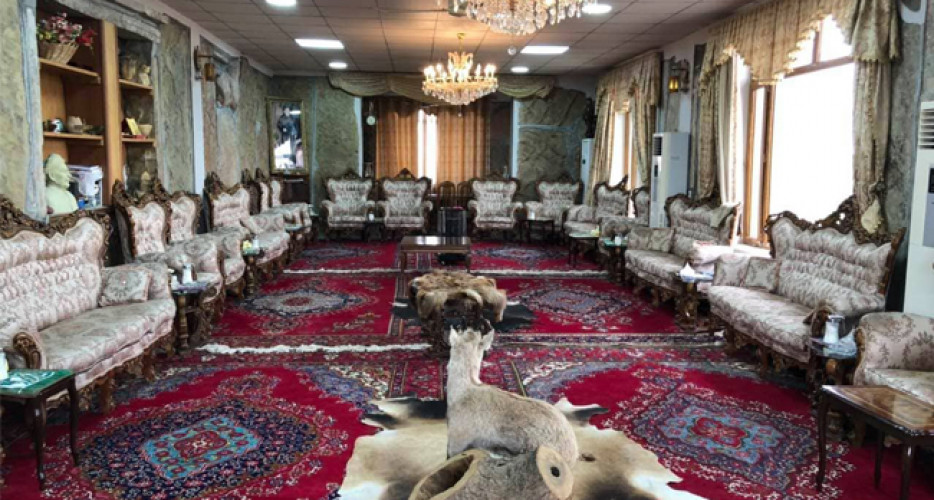
Peregraf- Haval Zangana
After much hesitation, Pshtiwan yusif decided to go to the Fatwa Council (fatwa: decisions in accordance to Islamic Law) instead of going to court and following legal procedures to find a solution to his problems.
He has faced a great deal of problems, ranging from family problems to being a victim of swindling. He has been suffering for over one year and has received countless advices.
"Apart from my family problems, my spouse’s brother stole USD10000 from me; he borrowed my car, sold it and took all the money. My spouse did not support me in this issue."
34-year-old Pshtiwan Yousef told Peregraf "I could not take it anymore. Since we decided to divorce, I consulted the Fatwa Council for my problem."
After getting into the detail of the problem and recognizing that both spouses have agreed to divorce, the Fatwa Council gave them an authentic divorce agreement, through which they managed to end their case in two rounds at court.
He had tried both ways; court and religious or tribal reconciliation. As he states, it has been two years that he took the case of his spouse’s brother stealing his property to the court but there has been no concrete result so far.
There has been hundreds of similar cases in the Kurdistan Region who avoided court and legal procedures and have chosen religious or tribal reconciliation or other more practical methods instead.
Sheik Abdulwahab Sangawi, member of the Central Council of Kurdistan Islamic Scholars Union, told Peregraf that "all the problems brought to Fatwa Centers such as marriage, divorce, property inheritance…etc. have their own sections in the Iraqi Personal Status Law."
"And we, at the Fatwa Council, will not make any decision incompatible with law and we frequently liaise with courts."
The Islamic Scholars Union has Fatwa Councils throughout the Kurdistan Region and the Supreme Fatwa Council is located in Erbil.
Sangawi believes that people have religious commitments and they use Fatwa Councils to meet their religious needs.
According to the constitution, however, every law in Iraq and the Kurdistan Region should be compatible with Islamic law.
Sheik Abdulwahab explained that law is a prescribed text but in fatwa centers, the mullahs tend to investigate the problem and talk to the spouses separately in order to get them to reach an agreement and reconcile. If the problem cannot be solved, then the center will issue an authentic divorce agreement which will be taken to court and be validated within a month.
According to Peregraf’s investigation, in a province like Chamchamal with a population of 200 000, 50 to 70 cases of social and family issues are being solved monthly without court involvement.
In the vast majority of cases, as a substitute to courts, tribal headmen and social units would have the final say.
Mariwan Karim Agai Hamawand, a social character and an owner of Diwakhan (a Kurdish word used when referring to a place dedicated to receiving guests), who has solved numerous problems in his house, told Peregraf "We come across different kinds of problems, from complaints to murder. We meet both parties and when they agree to the proposed solution, we arrange a meeting in which the problem is solved."
The excuse given by those who choose to avoid court procedures and place more importance on tribal or social reconciliation is that in the Kurdistan Region law autonomy is not guaranteed and court procedures are usually lengthy and time-consuming.
"People would go to court to solve their problems, but because the courts are not independent and law is not enforced, they choose social reconciliation, where an agreement is reached based on the type of problem."
Legislators and the proponents of law do not disregard social reconciliation, but they are also reluctant to view it as a replacement to law.
Lawyer Hiwa Rafiq told Peregraf "In Personal Status Law section 698, concerning reconciliation - reconciliation is allowed to have rules when solving problems since it can involve legal action. But the vast majority of the reconciliations made out of the courts do not end the problem. Therefore, it should only be allowed in civil lawsuits and it should be brought to court to be legitimized."
Apart from social characters and Diwakhans, most of the Kurdish political parties have their own social centers or they take part in social or tribal reconciliations, especially when the problem is between two tribes.
"Often, one of the parties of the reconciliation is not committed to the agreement, but if the reconciliation was held in court it would have legal power and everyone would have to abide." said Hiwa Ragiq.
The lawyer said that in divorce cases, although the fatwa councils provide additional assistance to the courts, they also have drawbacks. It has occurred that a woman missed out on her rights because she was not fully aware of them.
In some tribal reconciliations, especially in murder cases, the victim would emancipate the culprit in exchange for a sum of money in order to avoid further hostility and murder.
Hiwa Rafiq believes that some cases are related to fundamental human rights. Therefore, even in cases where reconciliations are made, legal punishments should still be applied whenever required.